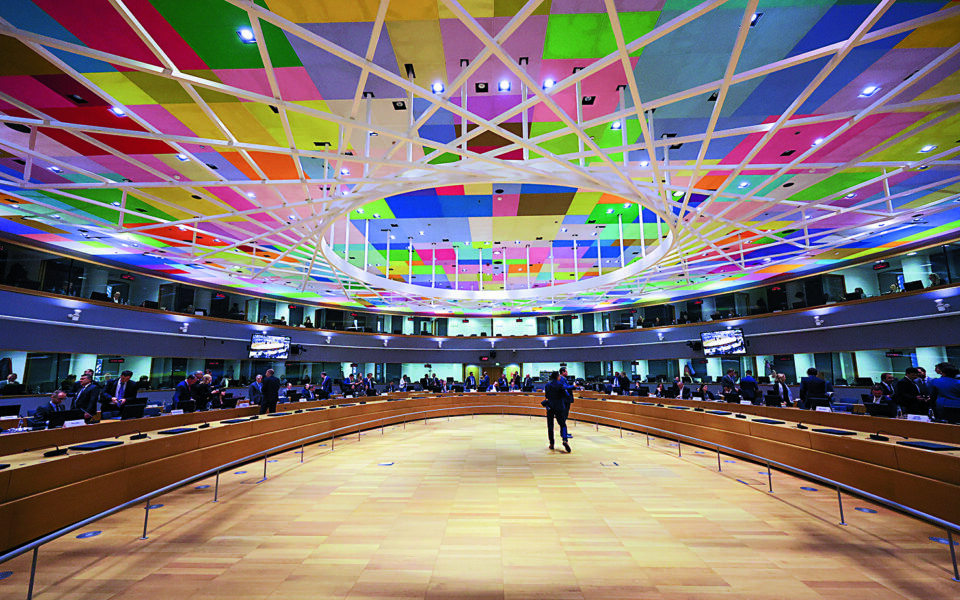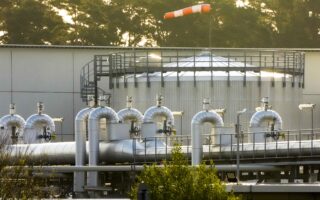A vote of confidence in Greece

Russia’s invasion of Ukraine has upended an energy sector that was moving at full stride – though at variable speeds – toward carbon neutrality. Europe realized, suddenly and jarringly, that, in a relationship of mutual dependency, like the one it had developed with Moscow, the supplier has the upper hand in crisis conditions and can weaponize the relationship.
I recall a conversation I had with a top energy sector manager last April, with him strongly rejecting the possibility of Russia burning off natural gas instead of exporting it. But the unthinkable has happened. So, when you are a customer, you are in an inferior position because you cannot control supply and you are dependent on how rational, or not, your supplier is.
Brussels, surrendering by and large to Berlin’s wishes, has been negligent in pursuing alternatives to Russian gas, while some European officials were claiming that, in this way, we could keep Moscow closely knit to Europe.
It took the annexation of Crimea and the subsequent war in Ukraine for Europeans to wake up and realize the obvious: that the absence of alternatives significantly shrinks the margin for diplomatic maneuvering and increases dependence on oligopolies. The cost of this delay will be borne, for at least the next couple of years, by households and businesses with shortages and power costs and certainly will be very high; prices were already rising before the war broke out.
Unfortunately, for the time being, Europeans cannot influence prices even in the slightest. The European Commission’s proposal to place a price ceiling of €275 per megawatt-hour, when prices in August 2021 stood at €28/ΜWh, is indicative of how far Brussels is from catering to the needs of the people and the European economies. We should note that liquefied natural gas (LNG) prices are also high currently.
The combined capabilities of Eastern Mediterranean countries, mostly in renewables but also natural gas, can provide a safe supply to the Old Continent
When I was in Brussels a couple of weeks ago, I confirmed the prevailing confusion about the future of energy. Transition to green energy remains a priority; however, the mixture of renewable and traditional energy sources to be adopted is unknown and depends on many variables. The EU had so far underestimated the value of natural gas as a transition fuel. And, while the return to the domestic production of coal and lignite (brown coal) is a choice of necessity not supposed to last more than three years, and nuclear energy remains a taboo, natural gas is of necessity becoming the bridge to a green future. But, the great disadvantage is that Europe’s so-called domestic sources are being depleted, dependence on imports increases and the primary sources needed for the energy transition are, to a great extent, in China’s hands.
The mobilization of the past few months has borne some fruit with the EU reaching out to countries such as Mozambique, Nigeria, Qatar, Trinidad and the US to import LNG; with the exception of the US, however, where significant amounts have been secured, the other solutions are either problematic (e.g. Qatar signed a 27-year deal with China last week), uneconomical or do not contribute seriously to the attempt to lessen dependence on Russia.
The combined capabilities of Eastern Mediterranean countries, mostly in renewables but also natural gas, can provide a safe supply to the Old Continent. But, on gas, the tide has turned and time is not on our side. Nonetheless, including Cyprus and Greece in the EU’s energy plans as likely producers and not transit countries is of particular value because it increases reliability and predictability in an especially uncertain energy setting.
Concerning Greece, ExxonMobil’s decision to almost double the area in which it will conduct seismic exploration for gas, combined with activity in other Greek regions, is a sign of a strong vote of confidence in our country. Noting the size and provenance of the companies involved, as well as the interest expressed by foreign firms (Chevron and Shell) with a presence in, and knowledge of, the Balkans and the Eastern Mediterranean, we understand that there are high expectations of finding hydrocarbon reserves underneath our soil and under the sea. And it is understandable that the exploration timelines are being brought forward as we consider the war in Ukraine and the resulting market needs; it is also a sign of Greece’s determination to do its best to become a regional hub for the transit, distribution and production of various forms of energy.
Constantinos Filis is the director of the Institute of International Affairs and an associate professor at the American College of Greece. “The Future of History,” edited by Professor Filis, is available from Papadopoulos Publications.





